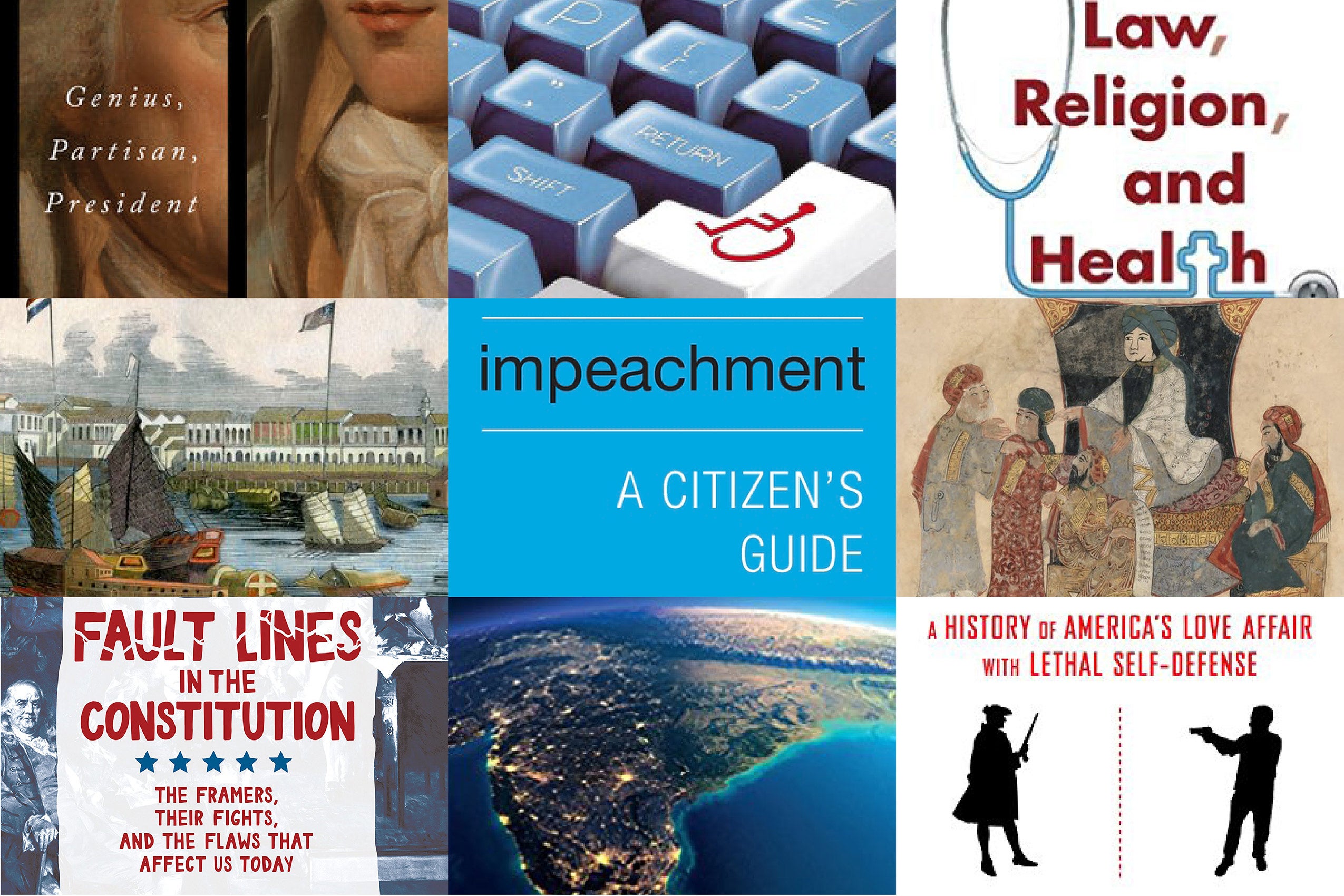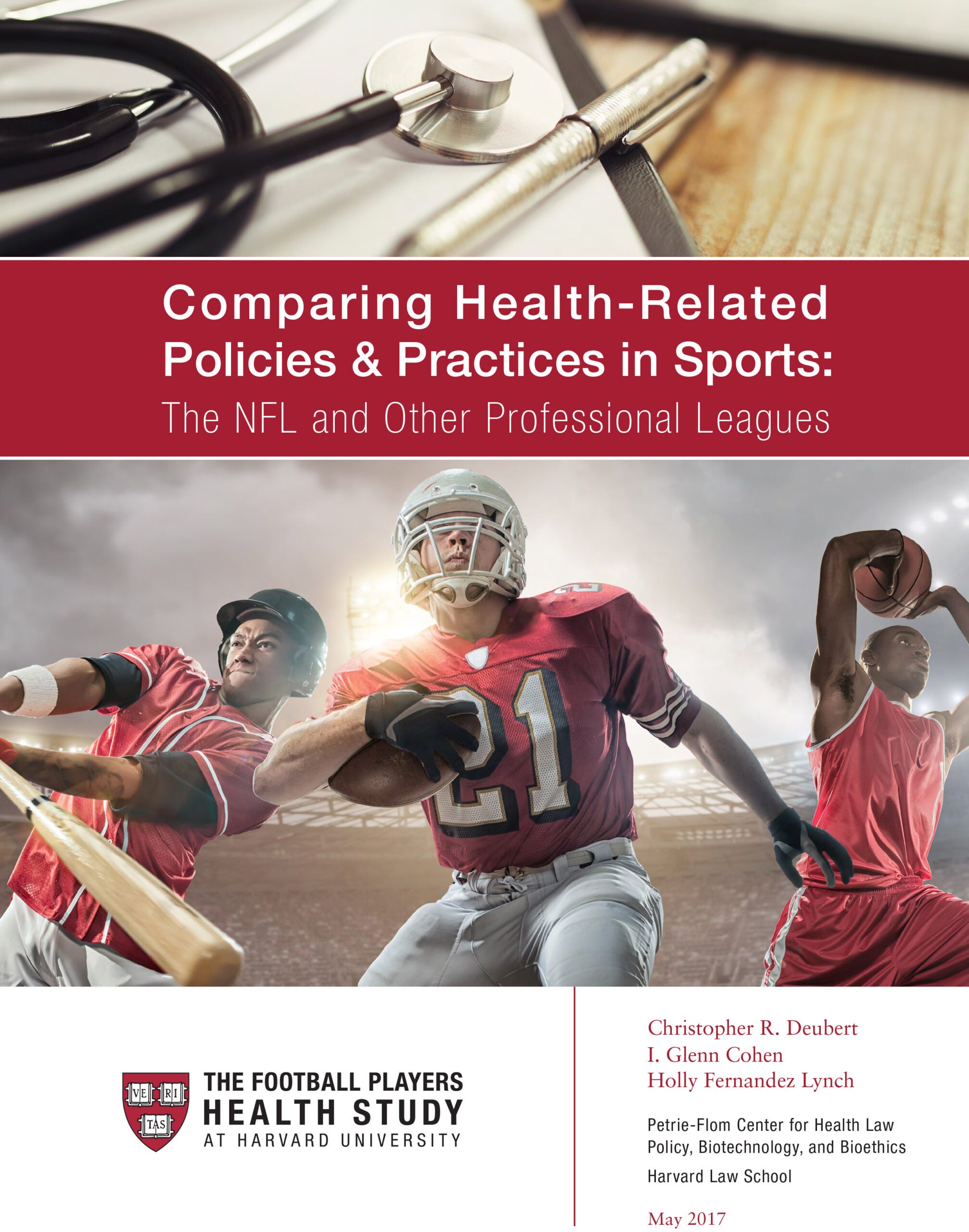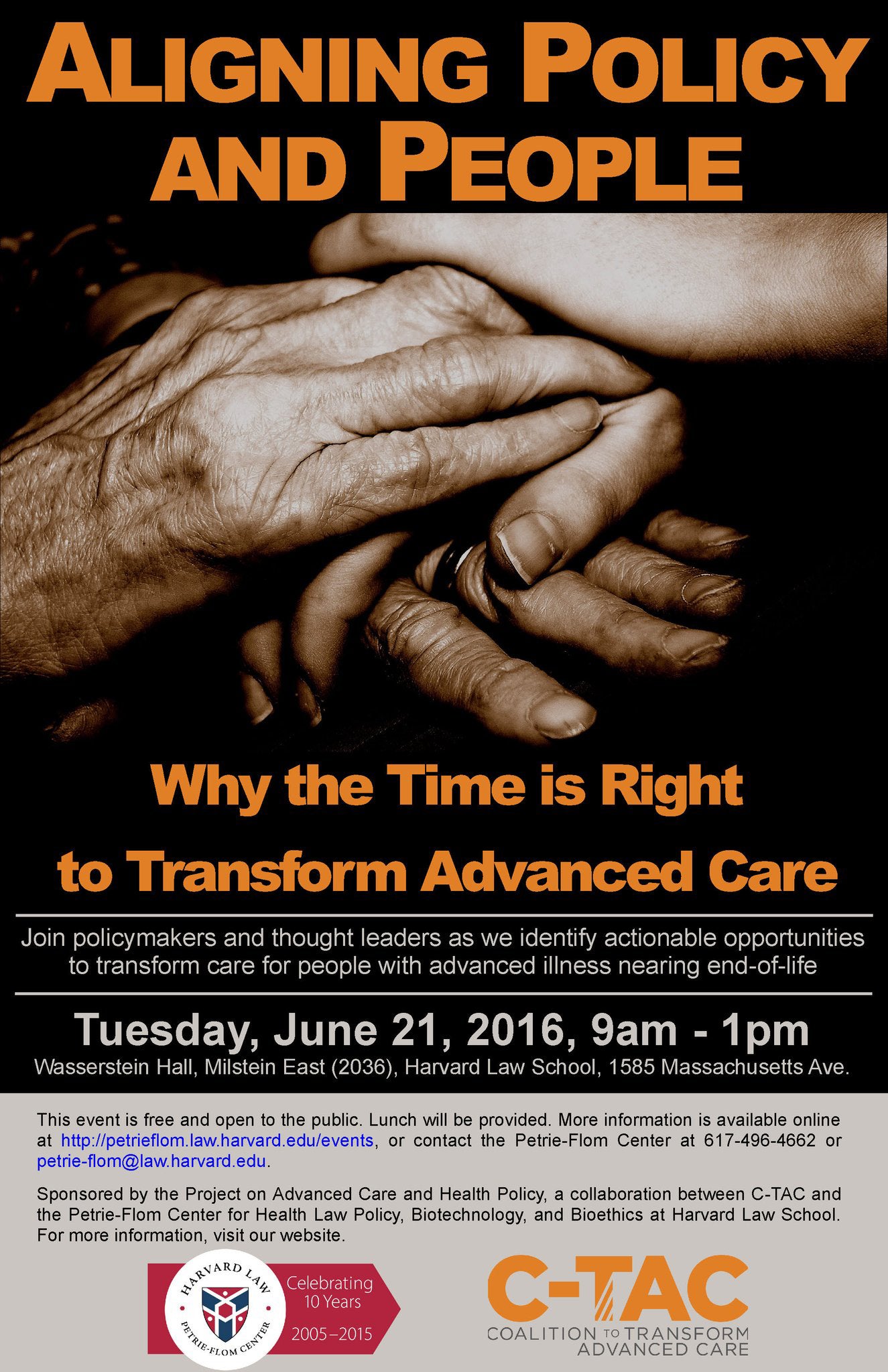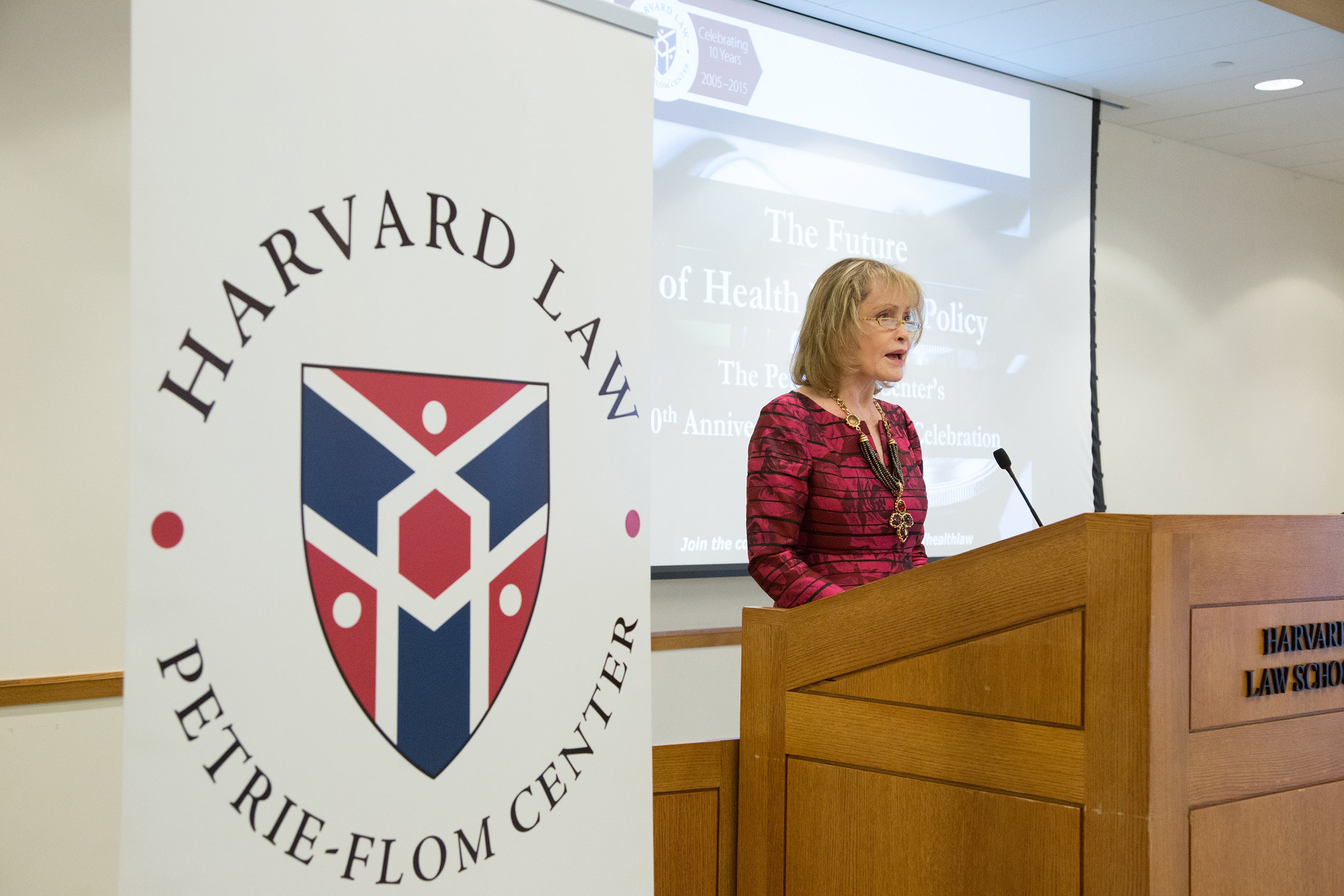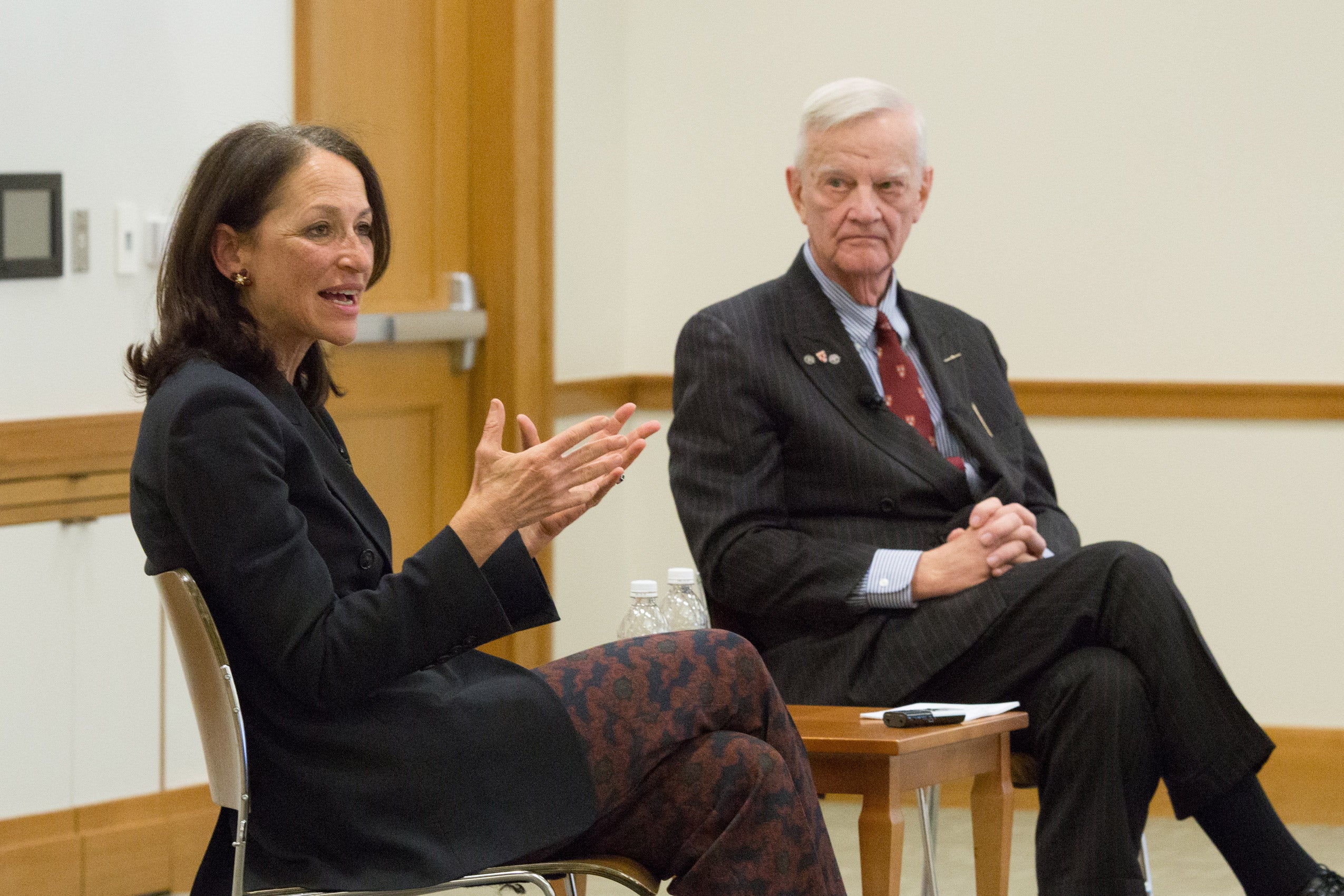People
Holly Fernandez Lynch
-
The physical demands are different. The types and severity of injuries are different. And the economics can vary wildly. But there are several common threads shared by professional sports leagues when it comes to health and safety issues, and a new report from the Harvard Law School is seeking to identify, study and compare them...“In terms of employee benefits, we think the NFL actually offers many employee benefits that Fortune 500 companies and many good employers do not,” said Harvard’s Glenn Cohen, one of the study’s co-authors...“Where players have only played one or two seasons (and perhaps games), there might be questions as to whether it is appropriate to provide lifetime health insurance to someone who was employed for such a short period of time,” states the report, which was co-written with Christopher Deubert and Holly Fernandez Lynch.
-
Harvard report compares NFL’s health policies and practices to other pro sports leagues’
May 15, 2017
While the NFL’s player health policies and practices are robust in some areas, there are opportunities for improvement in others, according to the findings of a new report by researchers at Harvard Law School's Petrie-Flom Center -- the first comprehensive comparative analysis of health policies and practices across professional sports leagues.
-
Science Needs Your Cells
April 21, 2017
An op-ed by Holly Fernandez Lynch and Steven Joffe. It’s often portrayed as a story of exploitation. In the early 1950s, Henrietta Lacks, a poor, young African-American woman, learned she had terminal cancer. Cells collected from a biopsy of her cancer were cultured without her knowledge or permission to develop a cell line, called HeLa...Many aspects of Ms. Lacks’s story reflect genuine injustice: the racism that characterized the health care system of her day; the suffering of her young family after her death; their own lack of access to health care. But should we be outraged by what happened to her cells, and could happen to our own? Actually, no.
-
This was the proposal: Deliberately infect a small group of consenting adults with the Zika virus to learn about the disease and speed up the search for a vaccine. The need is clear...That’s why ethics review of human subject research matters. This NIH panel is an especially good model in both its composition — expertise in law, medicine, medical science, social sciences, vaccine research and advocacy and bioethics — and its transparency. The findings are there for all to see on the NIH website, including the researchers, who now have more to do before receiving the NIH go-ahead for their important work. “We didn’t want to be overly protective,” said Holly Lynch, a member of the NIH ethics panel and executive director of the Petrie-Flom Center at Harvard Law School.
-
DHS questions whether Mayo policy violates law
March 17, 2017
The Minnesota Department of Human Services is probing the Mayo Clinic for possible violations of civil- and human-rights laws by putting a higher priority on patients with commercial insurance...But the practice does raise some ethical questions, especially as Washington is debating major changes to Medicaid that health policy experts say would put millions at risk of losing coverage. It also raises questions about the cost of care in the United States, said Holly Fernandez Lynch, executive director of the Harvard Law School's Petrie-Flom Center. "I think it's challenging and troubling to say that we are going to prioritize people who can pay more over people who can pay less," she said. "Better approaches would be a focus on the quality of care for less cost."
-
Scientists spoke, the feds listened: With only two days left in office, the Obama administration on Wednesday issued new rules intended to protect people who participate in scientific research, stepping back from proposals that would have imposed significant new regulatory requirements on scientists...“This is a big win for science and therefore a big win for patients,” said bioethicist Holly Fernandez Lynch of Harvard Law School.
-
Behavioral science suggests that Obamacare may not change as much as Republicans claim
January 3, 2017
An op-ed by Christopher T. Robertson, Holly Fernandez Lynch, and I. Glenn Cohen. In the waning days of his administration, President Obama encouraged Americans to take advantage of the opportunity to get health insurance in what may be the last open enrollment period under the Affordable Care Act. Given the incessant chatter about the incoming administration’s plans to “repeal,” “repeal and delay,” or “repeal and replace” the act, is this just a fool’s errand — wasted effort adding more people to the slate of millions who will lose coverage if the ACA gets dismantled as promised? Perhaps. Or perhaps Obama is seeking to capitalize on the well-studied phenomenon known as loss aversion. In a nutshell, loss aversion means that it feels worse to lose something than never to have had it in the first place. Consumers, including those signing up for health insurance, tend to make relative judgments about their own welfare, rather than absolute judgments, and losses loom larger than gains.
-
Simmons vs. Gladwell: The Future of Football
December 1, 2016
...Gladwell: I would actually go further: Players should be limited to 15 of 17 games. Football has lent itself to complication, and two “bye” games for every player just doubles the fun. Also, surely the goal here is to materially decrease the injury burden. Which leads me to my first issue: In mid-November, a group at Harvard University issued a 493-page report on health care in the NFL. Their main recommendation was that the physicians who take care of injured players should no longer report to the clubs. That’s a clear conflict of interest.
-
When NFL calls the doctor
November 17, 2016
An op-ed by I. Glenn Cohen, Holly Fernandez Lynch, and Christopher R. Deubert. From major media outlets to federal research funding to conversations among concerned spectators and parents, the nation is at a moment of unprecedented focus on the potential health consequences of playing football, especially at the professional level. There is a clear need to develop better preventative, diagnostic, and therapeutic interventions for individual players. However, to truly protect and promote player health, it is essential to address individual factors and structural features simultaneously. One such structural feature is the relationship between players and the club doctors from whom they receive care. The system must do more to ensure that players receive excellent health care they can trust from providers who are as free from conflicts of interest as possible.
-
NFL doctors’ conflicts of interest could endanger players, report says
November 17, 2016
Doctors that work for professional football teams have conflicts of interest that could jeopardize players’ health, according to a report by Harvard researchers...“[Players] are treated by people who are well-meaning, don’t get me wrong, but operate in a structure that’s infected with a structural conflict of interest,” said I. Glenn Cohen, a Harvard Law School professor who coauthored the report. “That conflict of interest is that they serve two people — they serve the player and the serve the [team].” The report quotes an unnamed player who says that some players don’t trust doctors because they work for the team. Coauthor and Harvard Medical School professor Holly Fernandez Lynch said investigating individual instances of jeopardized decision-making fell outside of the scope of the report.
-
NFL doctors should not report to teams, Harvard study recommends
November 17, 2016
A new report from Harvard Law School proposes drastic changes in the way health care is administered in the NFL, urging the nation’s most popular sports league to upend its system of medicine and untangle the loyalties of the doctors and trainers charged with treating players...In interviews, the Harvard researchers say they were surprised by the league’s response. “I had expected we’d maybe be quibbling around the margins of how it would actually be implemented,” said Holly Fernandez Lynch, the executive director of the Petrie-Flom Center and one of the report’s authors. “I did not expect that we would have to have this conversation about whether there is, in fact, a conflict because it’s so obvious on its face.” “Admitting you have a problem is the first step to get over,” added Harvard law professor Glenn Cohen, another of the report’s authors, “and while we think many of the people who serve as club medical staff are wonderful doctors and excellent people — this is not to besmirch them or their reputation — it is not going to produce a good system if you’re operating under an inherent structural conflict of interest and one that is corrosive to player trust.”
-
Does human specimen research always need consent?
July 25, 2016
Should scientists be allowed to study your biological specimens — such as blood, urine or tissue samples — if you haven’t expressly given them permission?...“What's being proposed to be changed now is saying, ‘It doesn't matter if those specimens have been de-identified. We're still going to require researchers to get your consent before using them,’” says Holly Fernandez Lynch, the executive director of the Petrie-Flom Center for Health Law Policy, Biotechnology and Bioethics at Harvard Law School...“The good ... in proposing this rule change is people don't know how their specimens are being used and if we fail to tell them, we're going to lose trust in the research enterprise,” Lynch says. “We really ought to be telling people what we're doing with their specimen — so that's sort of the justification that's been put forth.”
-
The Coalition to Transform Advanced Care (C-TAC), a non-profit organization with a vision of improving advanced illness care for all Americans, and the Petrie-Flom Center for Health Law Policy, Biotechnology, and Bioethics at Harvard Law School co-hosted the inaugural event for their new collaboration: The Project on Advanced Care and Health Policy.
-
The Summer Olympics And The Zika Virus — Is It Safe To Hold The Games In Brazil? (audio)
June 7, 2016
Olympic athletes going to Rio de Janeiro might come home with more than just a medal. Some public health officials are concerned about athletes, tourists and members of the media getting bitten by mosquitos carrying the Zika virus...Dr. Holly Fernandez-Lynch (@PetrieFlom), signed the letter to the W.H.O. She is the executive director of the Petrie-Flom Center for Health Law Policy, Biotechnology, and Bioethics at Harvard University. From her perspective, the main concern is having athletes and tourists that could potentially carry the Zika virus return to their home country with a weak public health infrastructure, including the United States. Congress has not funded research regarding the Zika in a way that the CDC and the President has requested.
-
On March 29, the Petrie-Flom Center for Health Law Policy, Biotechnology, and Bioethics at Harvard Law School celebrated its first decade and kicked off the next with a conference that focused on the future of health law and policy.
-
Petrie-Flom Center and Coalition to Transform Advanced Care launch project on advanced care and health policy
March 28, 2016
The Petrie-Flom Center for Health Law Policy, Biotechnology, and Bioethics at Harvard Law School and the Coalition to Transform Advanced Care (C-TAC) today announced a new collaboration, The Project on Advanced Care and Health Policy.
-
Former FDA commissioner reflects on public health regulation
February 3, 2016
In a visit to Harvard Law School on Jan. 20, former U.S. Food and Drug Administration commissioner Dr. Margaret A. Hamburg HMS ’83 reflected on her six-year tenure at the agency and shared her thoughts about the future of public health regulation.

